Is Aloe Vera Good for Oily Skin?
Imagine a sponge so absorbent that it effortlessly soaks up excess moisture without becoming saturated.
This isn’t a revolutionary kitchen tool; it’s the core essence of aloe vera for oily skin.
For centuries, aloe vera has been revered for its skin-balancing properties, and in today’s modern skincare realm, it’s celebrated as a natural mattifying agent.
Let’s explore the unique composition of aloe vera and discover its unparalleled ability to regulate sebum production and maintain a fresh, non-greasy complexion.
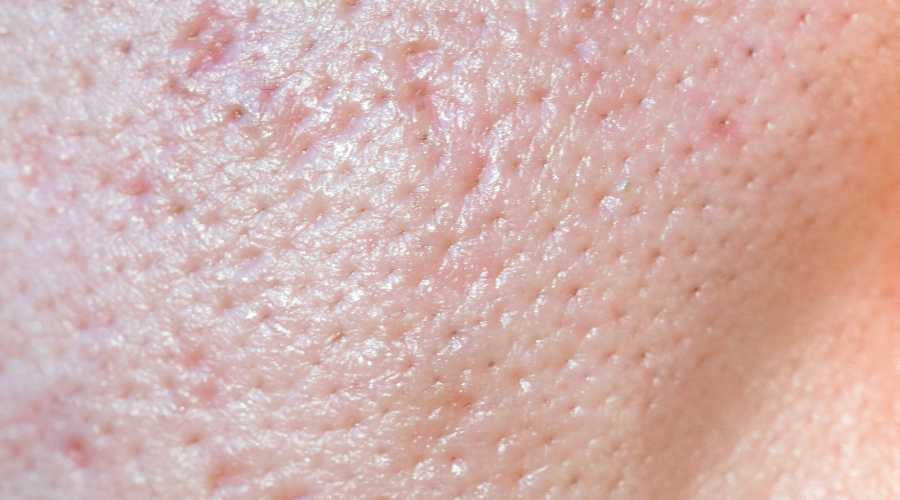
Benefits of Aloe Vera for Oily Skin
Aloe vera is a potent botanical that offers a plethora of benefits for various skin types, including oily skin. Here’s how aloe vera is beneficial for those with an oily complexion.
- Natural Moisturiser: Aloe vera hydrates the skin without leaving a greasy residue, making it an ideal moisturiser for oily skin types.
- Sebum Regulation: Contains compounds that help balance the skin’s natural oil production, reducing excessive shininess and potential breakouts.
- Anti-inflammatory Properties: Soothes the skin by reducing redness, swelling, and irritation, which can be common issues for oily skin types.
- Antimicrobial Benefits: Prevents acne-causing bacteria from thriving on the skin, thereby reducing the occurrence of pimples and breakouts.
- Gentle Exfoliation: Assists in the removal of dead skin cells, preventing them from mixing with excess sebum and leading to clogged pores.
- pH Balancing: Helps in stabilising the skin’s pH, ensuring it remains balanced and not overly acidic or alkaline.
- Rich in Antioxidants: Packed with vitamins and antioxidants, especially vitamins C and E, nourishing and protecting the skin from environmental stressors.
These benefits highlight the versatility of aloe vera as a skincare ingredient, especially for those with oily skin. Incorporating aloe vera into a skincare routine can help address various concerns associated with oily skin while promoting overall skin health.
1. Natural Moisturiser
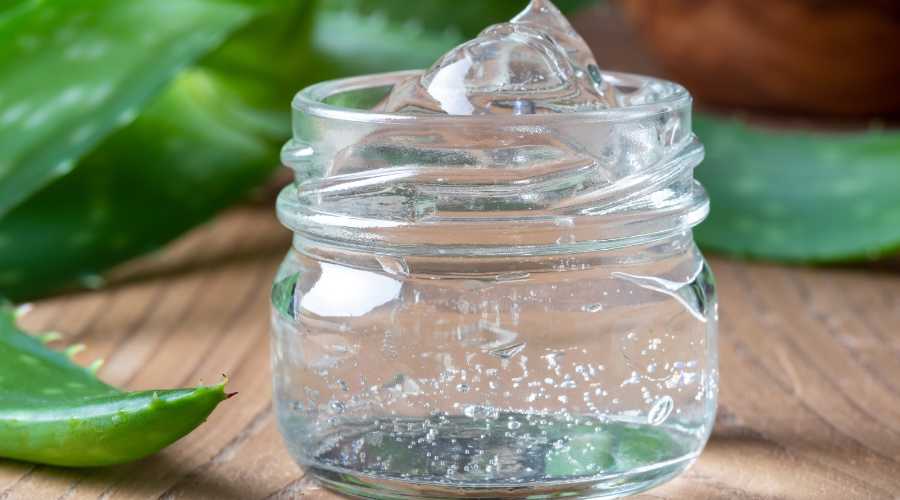
Finding a moisturiser that hydrates without exacerbating oiliness can be challenging for those with oily skin.
Aloe vera gel is lightweight and water-based, making it an ideal moisturiser for oily skin. It hydrates the skin without leaving a greasy residue or clogging pores.
Its succulent leaves contain the famous gel, bursting with bioactive compounds including vitamins, minerals, amino acids, and enzymes.
This unique composition makes aloe vera a sought-after ingredient in the world of dermatology and cosmetics.
Aloe Vera’s Moisturizing Properties:
Lightweight and Water-based
Aloe vera gel is inherently lightweight, making it an excellent choice for those who want hydration without the heaviness of traditional creams. Its water-based nature ensures that the skin remains moisturised without feeling greasy or clogged.
Rich in Vitamins and Minerals
The gel is packed with vitamins E and C, both of which are essential for skin health. Vitamin E is known for its moisturising properties, while vitamin C promotes collagen production, ensuring skin remains supple and hydrated.
Natural Humectant
Aloe vera acts as a natural humectant, drawing moisture from the environment into the skin. This ensures prolonged hydration, especially in dry or arid conditions.
Balances Skin’s pH
A balanced skin pH is crucial for maintaining its barrier function and hydration levels. Aloe vera helps stabilize the skin’s pH, ensuring optimal moisture retention.
Scientific Insights into Aloe Vera’s Moisturising Properties:
- This study highlighted that aloe vera exudate contains lignin compounds that can help moisturize the skin. While this study focused on lip moisturization, the properties of aloe vera in moisturizing the skin are evident.
- Another research emphasised that both avocado and aloe vera extracts have moisturising benefits. The study further elaborates on the antioxidant activity of aloe vera, which can support skin health.
- In this study it was discussed that aloe vera leaves have benefits in moisturising the skin due to their vitamin E content. The research also touches upon the antioxidant compounds in aloe vera that can support increased skin elasticity.
- In this research it was found that aloe vera topical application showed significant improvement in skin barrier functions, including hydration.
2. Sebum Regulator
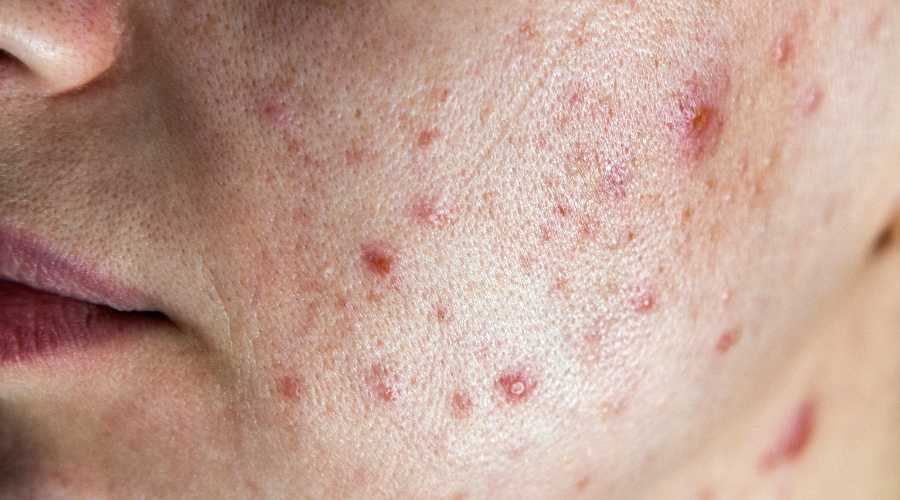
While many are familiar with its soothing and moisturizing properties, a lesser-known facet of aloe vera is its ability to regulate sebum production.
Understanding how aloe vera can help balance sebum is a game-changer for those grappling with oily skin and its challenges.
Aloe vera contains certain compounds that can help regulate the production of sebum (the skin’s natural oil). Balancing oil production prevents excessive shininess and reduces the likelihood of breakouts.
Aloe Vera’s Sebum Regulation Properties:
Natural Balancer
At the heart of oily skin lies the overproduction of sebum, the skin’s natural oil. Aloe vera contains compounds that work in tandem with the skin’s sebaceous glands, ensuring that oil production is balanced. This means the skin remains moisturised without the unwanted shine.
Soothing and Anti-inflammatory
Oily skin often becomes a breeding ground for acne and inflammation. Aloe vera steps in with its potent anti-inflammatory agents, calming the skin and reducing redness and swelling. This not only addresses the symptoms but also tackles the root cause of many skin issues associated with excess oil.
Antimicrobial Action
The skin’s surface is home to numerous microorganisms, some of which can exacerbate skin problems when sebum production is high. Aloe vera’s inherent antimicrobial properties come to the rescue, preventing harmful bacteria from thriving and reducing the chances of breakouts.
Scientific Insights into Aloe Vera’s Sebum Control:
- This research looks into the antibacterial prowess of aloe vera. The study underscores aloe vera’s effectiveness against Propionibacterium acnes, a primary culprit behind acne. This research provides a scientific foundation for aloe vera’s role in sebum regulation and acne prevention.
- Another study highlights the protective attributes of aloe vera gel coatings. While the primary focus is on preserving mushrooms, the study indirectly emphasizes aloe vera’s stabilizing properties, which can be beneficial for skin health.
- This research showcases the combined antimicrobial strength of aloe vera and tea tree oil. This synergy can be particularly potent in addressing skin concerns related to excess sebum and microbial infections.
3. Anti-inflammatory Properties
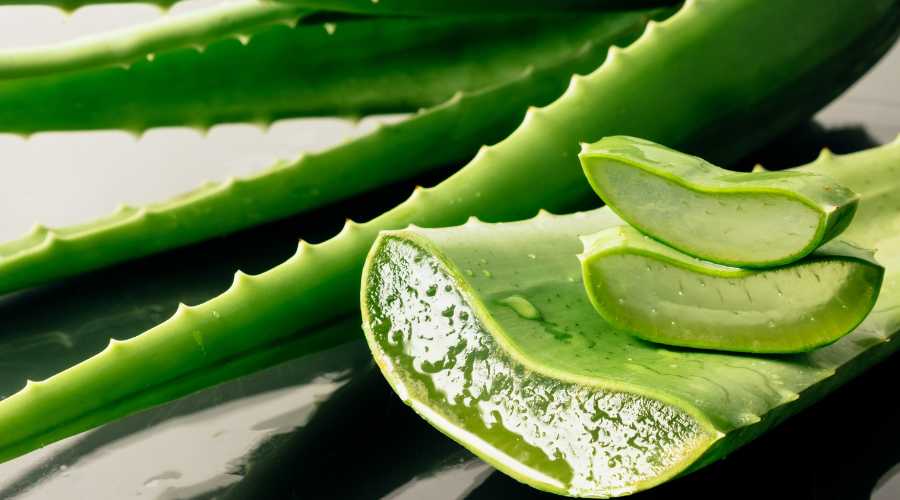
Oily skin can often be prone to acne and inflammation. Aloe vera has natural anti-inflammatory agents that soothe the skin, reducing redness, swelling, and irritation.
Understanding Aloe Vera’s Anti-inflammatory Properties:
Naturally Soothing
Aloe vera gel is packed with compounds that naturally soothe the skin. When applied, it offers immediate relief, reducing redness, swelling, and irritation. This is particularly beneficial for those who experience flare-ups or have sensitive skin.
Keeps Skin Calm and Balanced
Oily skin is often a precursor to acne, which is an inflammatory condition. Aloe vera, with its anti-inflammatory agents, not only reduces the inflammation associated with acne but also prevents the onset by keeping the skin calm and balanced.
Rich in Antioxidants
Aloe vera is a powerhouse of antioxidants, which play a crucial role in reducing inflammation. These antioxidants combat free radicals, which can otherwise exacerbate skin inflammation.
Scientific Research Supporting Aloe Vera’s Anti-inflammatory Benefits:
- This study explores various skin benefits of aloe vera, highlighting its antioxidant and anti-inflammatory properties. The research suggests that aloe vera provides significant antioxidant protection and has anti-inflammatory effects that can be beneficial for skin health.
- This other research underscores the therapeutic properties of aloe vera in treating skin conditions like psoriasis. The study emphasizes the anti-inflammatory properties of aloe vera, making it a potential treatment option for inflammatory skin conditions.
- This paper provides a comprehensive overview of the pharmacological properties of aloe vera. The research confirms the anti-inflammatory actions of aloe vera, especially in the context of skin health.
4. Antimicrobial Benefits

The antimicrobial properties of aloe vera can help prevent acne-causing bacteria from thriving on the skin, reducing the occurrence of pimples and breakouts.
In the context of skincare, especially for those with oily skin prone to acne, understanding the antimicrobial benefits of aloe vera can be a revelation.
Delving into Aloe Vera’s Antimicrobial Properties:
Combats Acne-Causing Bacteria
Aloe vera contains compounds that exhibit strong antimicrobial activity, targeting and inhibiting the growth of acne-causing bacteria such as Propionibacterium acnes.
Prevents Breakouts
By keeping harmful bacteria at bay, aloe vera reduces the occurrence of pimples and breakouts, ensuring the skin remains clear and healthy.
Scientific Research Supporting Aloe Vera’s Antimicrobial Benefits:
- This study highlights the antimicrobial properties of aloe vera, especially when combined with other medicinal plants. The research suggests that aloe vera exhibits significant antimicrobial activity against Gram-positive and Gram-negative bacteria and fungi.
- This other research looks into the antimicrobial effects of aloe vera against Propionibacterium acnes, a primary acne-causing bacteria. The study underscores aloe vera’s efficacy in inhibiting this bacteria’s growth, further supporting its role in acne prevention.
- This comprehensive paper provides an in-depth overview of the pharmacological properties of aloe vera. The research confirms aloe vera’s antimicrobial actions, especially in skin health, and highlights its potential in combatting various pathogens.
5. Gentle Exfoliation

Another one of its lesser-known yet highly effective properties is its ability to assist in gentle exfoliation.
Aloe vera can assist in the gentle removal of dead skin cells, which can otherwise mix with excess sebum and lead to clogged pores.
For those seeking a natural way to keep their skin fresh and radiant, understanding the exfoliating benefits of aloe vera can be helpful.
Understanding Aloe Vera’s Exfoliating Properties:
Natural Enzymes
Aloe vera contains enzymes that help break down dead skin cells on the surface. This enzymatic action ensures that the skin remains smooth and free from the build-up that can make it appear dull.
Preventing Clogged Pores
Dead skin cells, if not removed, can mix with excess sebum and lead to clogged pores. Aloe vera aids in the gentle removal of these cells, reducing the chances of breakouts and blackheads.
Enhancing Skin Absorption
By removing the layer of dead skin cells, aloe vera ensures that skincare products penetrate deeper and work more effectively. This can be particularly beneficial for those using serums or treatments.
While aloe vera’s exfoliating properties are well-acknowledged in the skincare community, it’s essential to note that scientific research specifically focusing on this aspect is limited. However, the anecdotal evidence and traditional use of aloe vera for skin rejuvenation cannot be overlooked.
Scientific Research Supporting Aloe Vera’s Exfoliating Benefits:
- This study explores the various components of aloe vera, including its enzymatic activity. The research suggests that aloe vera possesses enzymes that can play a role in skin renewal and exfoliation.
- This other research paper touches upon the benefits of aloe vera in skincare formulations. While the primary focus is on antiaging properties, the inclusion of aloe vera suggests its role in skin rejuvenation and renewal.
- This research underscores the protective effects of aloe vera against UVB-induced skin damage. The study hints at the potential of aloe vera in promoting skin health and renewal.
6. pH Balancing
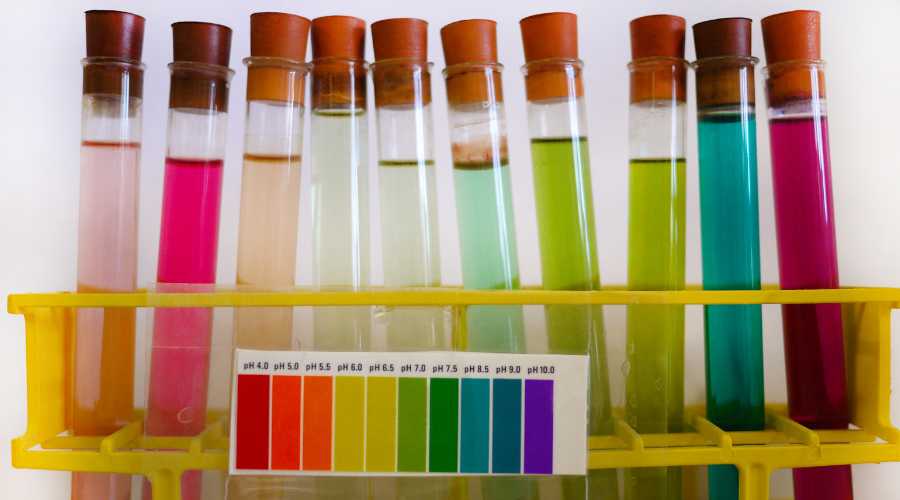
Maintaining a balanced skin pH is crucial for skin health. Aloe vera helps in stabilising the skin’s pH, ensuring it’s neither too acidic nor too alkaline, both of which can exacerbate oiliness.
For those keen on understanding the intricacies of skin health, the pH balancing attributes of aloe vera offer a fresh perspective.
The Importance of Skin pH:
- Skin’s Acid Mantle: The skin’s surface has a thin, protective layer known as the acid mantle. This layer is slightly acidic, with a pH typically ranging between 4.5 to 5.5. This acidity helps ward off harmful bacteria and maintains the skin’s barrier function.
- Disrupted pH and Oily Skin: An imbalance in skin pH, whether too acidic or too alkaline, can exacerbate oiliness. It can also make the skin more susceptible to infections, inflammation, and breakouts.
Aloe Vera’s Role in pH Balancing:
- Natural pH Stabiliser: Aloe vera has an inherent ability to help stabilise the skin’s pH. Its gel-like consistency, when applied topically, can ensure the skin remains within its optimal pH range.
- Prevention of pH-Related Issues: By maintaining a balanced pH, aloe vera helps in preventing issues related to pH disruptions, such as excessive oiliness, breakouts, and sensitivity.
Scientific Research Supporting Aloe Vera’s pH Balancing Benefits:
Scientific Research Supporting Aloe Vera’s Exfoliating Benefits:
- This study explores the benefits of aloe vera in skincare. The research highlights how aloe vera can improve skin barrier function, which is closely related to skin pH balance. The study found that aloe vera significantly improved the skin’s pH levels, especially in areas exposed to external factors.
- Another research underscores the therapeutic properties of aloe vera in skincare formulations. While the primary focus is on psoriasis treatment, the inclusion of aloe vera in the formulations suggests its role in maintaining skin health and pH balance.
7. Rich in Antioxidants
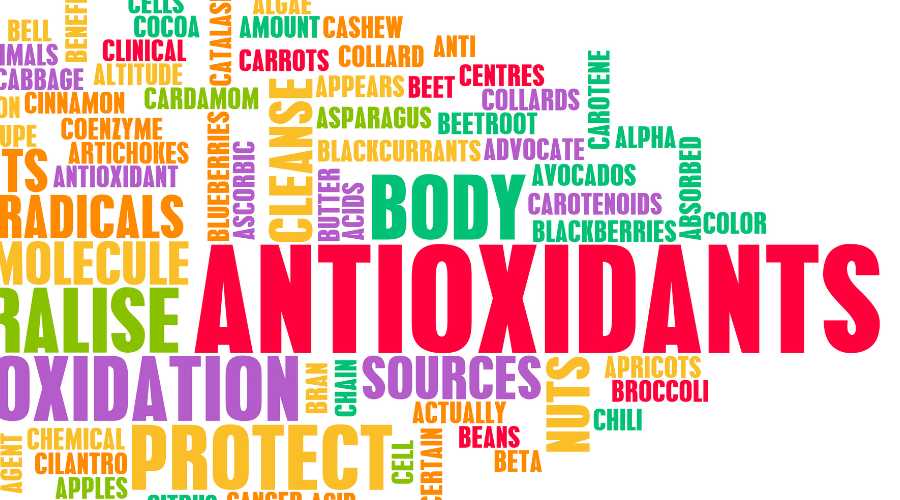
Aloe vera is packed with vitamins and antioxidants, such as vitamins C and E. These not only nourish the skin but also protect it from environmental stressors that can trigger excess oil production.
The Antioxidant Profile of Aloe Vera:
Packed with Vitamins
Aloe vera is rich in vitamins, notably vitamins C and E. These vitamins are essential for skin health as they provide nourishment, promote collagen production, and protect the skin from premature ageing.
Protection Against Environmental Stressors
Our skin is constantly exposed to environmental aggressors like pollution, UV rays, and toxins. Antioxidants in aloe vera neutralise the harmful effects of these stressors, preventing them from triggering excess oil production and other skin issues.
Boosting Skin’s Natural Defence
The antioxidants in aloe vera strengthen the skin’s natural defence mechanisms, helping it combat free radicals and oxidative stress, which are major culprits behind skin ageing and damage.
Scientific Research Supporting Aloe Vera’s Antioxidant Benefits:
Scientific Research Supporting Aloe Vera’s Exfoliating Benefits:
- This study looks into the detrimental effects of free radicals on skin health. It underscores the importance of antioxidants in combating these effects. The research suggests that natural antioxidants, like those found in aloe vera, can significantly prevent skin damage caused by environmental factors.
- Another research touches upon the therapeutic properties of natural ingredients, including aloe vera, in skincare. The study emphasises the role of antioxidants in protecting the skin against harmful UV rays and other environmental stressors.
Holistic Approach: While aloe vera offers multiple benefits for oily skin, it’s essential to incorporate it into a balanced skincare routine. This means cleansing with a gentle cleanser, using non-comedogenic products, and ensuring adequate sun protection. Aloe vera can significantly improve the texture, appearance, and health of oily skin when used consistently and as part of a holistic skincare regimen.
How to Use Aloe Vera for Oily Skin
Here’s how you can incorporate this wonder plant into your skincare routine.
Pure Aloe Vera Gel:
Aloe vera gel, extracted directly from the plant’s leaves, is a versatile skincare ingredient. Its lightweight and non-greasy texture makes it perfect for direct application, especially for those with oily skin.
Benefits:
- Immediate Hydration: Applying aloe vera gel provides instant hydration without making the skin oily.
- Soothing Effect: Its natural cooling properties can calm irritated or sunburned skin.
- Acne Reduction: Regular application can help reduce acne and prevent breakouts due to its antimicrobial properties.
Application: Extract fresh aloe vera gel from the leaf and apply it directly to a cleansed face. Let it sit for 15-20 minutes, then rinse off with lukewarm water or just leave it if fully absorbed. For best results, use daily or as needed.
The below combinations are very good for oily skin:
- Aloe Vera and Cucumber: Both aloe vera and cucumber are known for their cooling and hydrating properties. This combination can provide a refreshing feel to the skin, making it ideal for calming inflamed or irritated skin.
- Aloe Vera and Multani Mitti (Fuller’s Earth): Multani mitti is renowned for its oil-absorbing properties, making it a popular choice for oily skin. When combined with aloe vera, it can offer a balanced treatment that absorbs excess oil while ensuring the skin remains hydrated.
- Aloe Vera and Tea Tree Oil: Tea tree oil is known for its antimicrobial properties, especially against acne-causing bacteria. Mixing it with aloe vera can provide a soothing moisturiser that targets acne while keeping the skin hydrated.
- Aloe Vera and Lemon Juice: Lemon juice is often used as a natural toner due to its astringent properties. When combined with aloe vera, it can help tighten pores and balance the skin’s pH.
- Aloe Vera and Banana: Bananas are a natural source of vitamins, especially vitamin C and B6, and antioxidants. When combined with aloe vera, they offer a nourishing and hydrating treatment suitable for all skin types, including oily skin.
Aloe Vera and Cucumber
Overview: Both aloe vera and cucumber are celebrated for their cooling and hydrating properties. When combined, they create a potent duo that can offer relief to inflamed or irritated skin, especially during hot weather or after sun exposure.
Benefits:
- Cooling Sensation: Cucumber is known for its immediate cooling effect, which can soothe sunburns or skin irritations.
- Hydration: Aloe vera provides deep hydration, ensuring that the skin remains moisturised without feeling greasy.
- Reduction of Puffiness: The combination can be especially beneficial for reducing puffiness around the eyes.
Application: Blend cucumber to create a juice and mix it with aloe vera gel in equal proportions. Apply the mixture to the face and let it sit for 15-20 minutes before rinsing off.
Aloe Vera and Multani Mitti (Fuller’s Earth)
Overview: Multani mitti, or Fuller’s Earth, is a type of clay known for its oil-absorbing properties. When paired with aloe vera, it offers a balanced treatment for oily skin.
Benefits:
- Oil Absorption: Multani mitti can absorb excess oil, reducing the shiny appearance of oily skin.
- Deep Cleansing: The clay can help unclog pores and remove impurities.
- Hydration: Aloe vera ensures that the skin doesn’t feel overly dry after the mask.
Application: Mix Multani mitti with aloe vera gel to create a paste. Apply to the face, avoiding the eye area, and let it dry before washing off.
Aloe Vera and Tea Tree Oil
Overview: Tea tree oil is renowned for its antimicrobial properties. When combined with aloe vera, it offers a targeted treatment for acne-prone skin.
Benefits:
- Acne Treatment: Tea tree oil can combat acne-causing bacteria.
- Soothing: Aloe vera can reduce the redness and inflammation often associated with acne.
- Moisturisation: The combination ensures that the skin remains hydrated without exacerbating oiliness.
Application: Mix a few drops of tea tree oil with aloe vera gel. Apply to the affected areas or use as a spot treatment.
Aloe Vera and Lemon Juice
Overview: Lemon juice, with its astringent properties, can act as a natural toner. When combined with aloe vera, it offers a balanced treatment for oily skin.
Benefits:
- Tightening Pores: Lemon juice can help reduce the appearance of large pores.
- Balancing pH: The combination can help stabilise the skin’s pH levels.
- Brightening: Lemon juice can offer a brighter complexion with regular use.
Application: Mix lemon juice with aloe vera gel. Apply the mixture to the face using a cotton pad, avoiding the eye area. Rinse off after 10 minutes. It’s recommended to use this mixture in the evening or at night to avoid potential sun sensitivity. If you do apply it during the day, ensure you wear a broad-spectrum sunscreen before stepping out.
Aloe Vera and Banana
Overview: Bananas are a natural source of vitamins, especially vitamin C and B6, and antioxidants. When combined with aloe vera, they offer a nourishing and hydrating treatment suitable for all skin types, including oily skin.
Benefits:
- Nourishment: Bananas provide essential vitamins and minerals that can rejuvenate and revitalise the skin.
- Natural Enzymes: Bananas contain natural enzymes that can gently exfoliate the skin, removing dead skin cells.
- Hydration: Aloe vera, combined with the moisturising properties of bananas, ensures the skin remains hydrated without feeling greasy.
Application: Mash a ripe banana and mix it with aloe vera gel to create a smooth paste. Apply the mixture to the face, letting it sit for 15-20 minutes before rinsing off with lukewarm water.
Conclusion
From ancient civilizations to contemporary skincare enthusiasts, aloe vera has consistently proven its mettle in managing oily skin.
As we’ve looked through its benefits for oily skin, from sebum regulation to antioxidant richness, it is evident that this humble plant is a powerhouse for oily skin care.
Embracing aloe vera is not just about skincare; it’s about harmonising with nature, understanding its wisdom, and allowing it to guide us towards radiant, balanced skin.
So, the next time you find your skin feeling a tad too shiny, remember the green, succulent leaves of aloe vera, waiting to bestow their magic upon you.
